If you’ve ever considered making the switch to plant protein or are simply curious about its benefits, you’re in the right place. This blog will walk you through everything you need to know, from why plant protein is becoming a go-to choice for many, to its potential side effects, and how it can fuel your body with sustainable, clean nutrition.
At its core, plant-based protein is exactly as it sounds—protein sourced from plants. This includes a variety of foods like beans, legumes, seeds, nuts, and even grains. Unlike animal-based proteins, which typically come from meat, dairy, and eggs, plant proteins are derived from whole foods, offering not just protein but a rich array of essential nutrients.
What sets plant-based protein apart is its remarkable nutritional profile. It's not only packed with protein but also loaded with fiber, antioxidants, vitamins, and minerals—many of which are often absent in animal-based proteins. This unique combination of nutrients helps meet your protein needs while supporting overall health.
Whether you’re following a vegetarian or vegan lifestyle or simply looking to add more nutrient-dense options to your meals, plant protein offers a well-rounded, balanced alternative. It's a perfect way to nourish your body and embrace the many benefits of a plant-powered diet.
The Plant Protein Benefits You Should Know About
There’s a reason plant protein is rising in popularity. Plant protein offers a wealth of benefits that can support everything from muscle building to overall health:
-
Improved Digestive Health: Plant-based protein is often packed with fiber, which is essential for healthy digestion. Foods like beans, lentils, and quinoa promote regularity and help maintain a healthy gut microbiome.
-
Sustainable and Eco-Friendly: Plant-based proteins have a lower environmental footprint compared to animal-based proteins. Growing plants requires fewer resources and causes less environmental damage, making it a great choice for sustainability-conscious individuals.
-
Heart Health: Plant protein sources like nuts, seeds, and legumes are rich in healthy fats, particularly omega-3 fatty acids, which have been shown to support heart health. When you opt for plant protein, you can benefit from better cholesterol levels and a reduced risk of heart disease.
-
Reduced Inflammation: Many plant-based foods are rich in antioxidants and anti-inflammatory compounds. These compounds help reduce inflammation in the body, which can be beneficial for conditions like arthritis or general muscle recovery.
-
Lower Risk of Chronic Disease: Numerous studies have linked plant protein to a reduced risk of chronic diseases, including diabetes and certain cancers. The fiber and phytochemicals in plant-based foods can contribute to overall health and longevity.
The Best Sources of Plant Protein
When it comes to plant-based protein, variety is essential. The goal is to choose a diverse mix of protein sources that provide all the essential amino acids your body requires for optimal health. With a wealth of options available, you can easily create a balanced, nutrient-rich diet. Here are some of the top sources of plant protein to consider incorporating into your meals:
-
Legumes: Lentils, chickpeas, and beans are among the richest sources of plant protein. A cup of cooked lentils provides around 18 grams of protein, along with fiber and essential nutrients.
-
Nuts and Seeds: Almonds, chia seeds, and hemp seeds are not only packed with protein but also offer a good dose of healthy fats. These make for a satisfying snack or a great addition to meals.
-
Whole Grains: Quinoa, farro, and barley are excellent plant-based sources of protein, and they also offer plenty of fiber to support digestive health.
-
Soy: Tofu, tempeh, and edamame are some of the most popular soy-based protein sources. They provide a complete protein, which means they contain all nine essential amino acids.
-
Green Vegetables: While not as protein-dense as legumes or seeds, vegetables like spinach and broccoli still contribute to your daily protein intake, especially when consumed in larger portions.
By combining different sources, you can ensure you’re getting a wide range of amino acids and other nutrients necessary for a balanced diet.
Plant Protein Side Effects
For most people, plant protein is a safe and beneficial addition to the diet. However, as with any dietary change, it’s important to be mindful of potential plant protein side effects.
-
Digestive Discomfort: Some individuals may experience bloating or gas when they first start incorporating plant protein into their diet. This is especially true for people who are not used to consuming high-fiber foods. Gradually increasing your fiber intake can help your body adjust more smoothly.
-
Allergic Reactions: While rare, some individuals may be allergic to specific plant-based proteins, such as soy or hemp. If you have a known allergy to any type of plant protein, be sure to check the ingredients of protein powders and avoid the ones that contain these allergens.
-
Imbalance in Amino Acids: Unlike animal proteins, some plant proteins are considered "incomplete," meaning they may lack one or more of the essential amino acids your body needs. However, by combining different plant protein sources throughout the day, you can ensure you’re getting all the essential amino acids your body requires.
Plant Protein Powder: A Convenient Option
While whole foods are fantastic sources of plant protein, plant protein powder offers a quick and convenient way to boost your intake. Plant protein powder is typically made from pea, hemp, brown rice, or soy protein, offering a concentrated form of plant-based protein in a simple, easy-to-use format.
But like anything, it’s important to choose the right plant protein powder. Look for products that are made from high-quality, clean ingredients to ensure you’re getting the best nutritional support possible. Plant protein powders that are free from artificial additives, preservatives, and sweeteners, make them a great option for those who want to keep things simple and natural. Also, protein supplements with added digestive enzymes can help better digestion of the protein and prevent any kind of discomfort.
In conclusion, incorporating plant-based protein into your diet isn’t just a trend—it’s a smart, sustainable way to nourish your body while supporting overall health. From its rich nutritional profile to its versatility, plant protein offers endless benefits, whether you’re looking to fuel an active lifestyle, improve digestion, or simply enjoy cleaner, more wholesome nutrition.
By embracing a variety of plant protein sources, you can ensure your body gets the essential amino acids and nutrients it needs to thrive. Whether you’re fully plant-based or just starting to explore the benefits, the journey to a more balanced, plant-powered diet is both rewarding and empowering. So, why not take a step toward better health today and experience the incredible potential of plant protein? Your body—and the planet—will thank you.







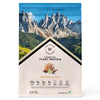

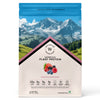






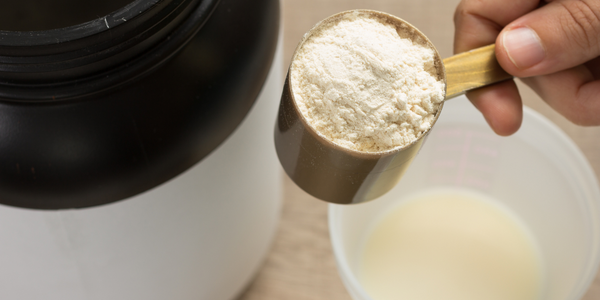

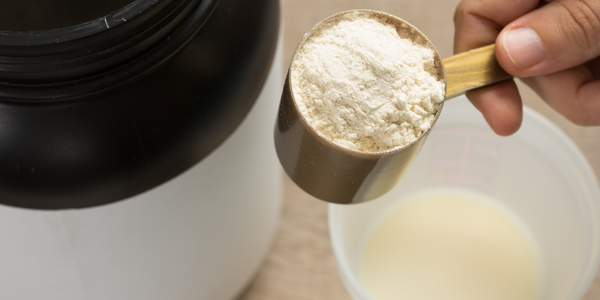
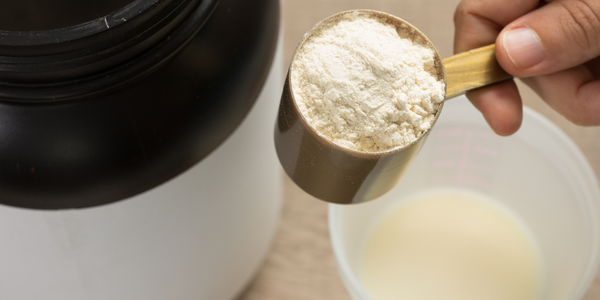










 DOWNLOAD NOW
DOWNLOAD NOW
